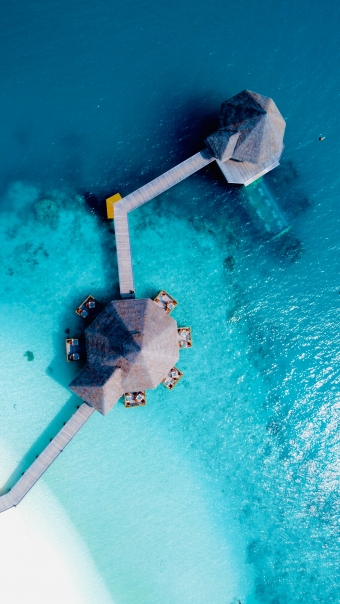The ocean supports the livelihoods, health, and survival of billons of people across the globe. However, over‑exploitation and a rapidly changing climate threaten these vital ocean ecosystems. Hotspots of biodiversity such as mangroves, coral reefs, and seagrass meadows, are under significant threat and an estimated one-third of all fisheries are over-exploited. As countries race to recover from the economic damage caused by COVID-19, the pace at which economic activities develop and intensify will only increase. To complicate matters further, the changing nature of our oceans affects how we use, access and benefit from these environments, which threatens existing relationships between the ocean and society (Bosello et al., 2007, Gissi et al., 2019).
Beyond GDP: Limitations to measuring the Ocean Economy
In this context, decision makers are tasked with balancing social, economic, and environmental considerations, to achieve pre-existing targets. Since 2015, the Sustainable Development Goals (SDGs) have been endorsed as a framework for commitments to social and environmental justice, wellbeing, and human development. Consisting of 17 goals and an overwhelming 169 targets, policymakers are informed by key statistics and indicators as measurements for progress towards the SDGs.
Measuring the state of our oceans, in addition to their use, are important in understanding our progress towards a more sustainable future. An understanding of economic productivity is often measured by a single indicator, such as Gross Domestic Product (GDP), which have long been regarded to inadequately account for the environment (Nordhaus and Tobin 1973) and fall especially short when assessing the ocean economy (Austen et. al. 2019). For example, most countries will record the monetary value of fish caught and landed, (i.e. fisheries-related GDP). However, this metric does not incorporate the lost opportunity for ecosystems to produce more fish into the future.
According to the World Bank, this is a $USD 83 billion annual oversight resulting from policies that ultimately support unsustainable decisions such as failing to protect habitats responsible for fish stocks. Therefore, we need to include information on both the goods we produce and the underlying ecosystem responsible for their production. This ensures we design policies to help ensure sustainable, and ultimately more profitable, resource management.
A sustainable future: How Ocean Accounting can contribute
Moving towards an integrated and wholistic understanding of the ocean and its resources requires the consolidation of a diverse array of information, which is often scattered across countries, institutions, and specialist expert communities. As explored by a new Blue Paper commissioned by the High Level Panel for a Sustainable Ocean Economy, there is an urgent need to standardise and centralise our knowledge, to produce organised information, which is vital for good decision making and its justification. A way to combine a diverse array of ocean data is through Ocean Accounting, which is a statistical framework to structure and compile ocean data. A common framework provides reliable and comparable information of the ocean, its importance to society, and how human activities impact ocean assets and services.
Thus, Ocean Accounting provides practical information across the ‘triple bottom line’ (social, economic, and environmental conditions) to ensure decisions are evidenced-based and have adequately weighed the costs and benefits to the environment and society. The approach recognises the multi-dimensional concept of sustainability, by producing multiple indicators. These policy-relevant indicators include:
- Economic production (GVA / ‘Ocean’ GDP),
- Flows of benefits (ecosystem services),
- Status of natural assets, and
- Impacts to the environment.
By doing so, countries may identify and gather critical information on the ocean benefits and resources which are vital for future economic growth. Decisions can be made to enhance both ocean health and ocean wealth, supporting sustainable development.
Global Ocean Accounts Partnership
To support Ocean Accounting, the Global Ocean Accounts Partnership (GOAP) provides a communicative and collaborative structure for scientific, government, and non-government institutions to work towards the development of an ocean accounting framework. The GOAP is developing a technical guidance towards producing ocean accounts, in addition to facilitating collaborative capacity building activities.
The partnership is co-chaired by United Nations Economic and Social Commission for Asia and the Pacific (ESCAP) and Fisheries and Oceans Canada, with the secretariat hosted by UNSW, supported by the Institute of Global Development and World Bank Blue Economy Program.
Under the leadership of Dr Ben Milligan, Scientia Fellow and Secretariat Director of the Global Ocean Accounts Partnership, UNSW and the United Nations Economic and Social Commission for Asia and the Pacific (ESCAP) co-hosted the first Global Dialogue on Ocean Accounting in November 2019.
Future Plans
A fundamental challenge to Ocean Accounting is the need for a comprehensive list of statistics that can be collected by countries that informs the condition of ecosystems, how they are currently managed and the services they provide. These ‘Core Ocean statistics’ must be equally weighted to connect environmental assets, flows to the environment, flows to the economy, and governance factors related to the ecosystem in question and provide decision-making capabilities to decision-makers.
The core ocean statistics need to be able to predict how different habitats within an ecosystem (e.g., coral reef, seagrass meadow, mangrove forest) might change over time and how the ecosystem will respond to management actions.
Next steps include engagement with industry, research, and government policy experts to refine the GOAP’s present list of 30 core ocean statistics to ensure that the developed set of statistics (which include variables, indicators, or indices) highlights the most significant aspects of an ecosystem’s condition with respect to economic value and effective management strategies.
Statistics will be chosen with consideration towards reproducibility, scientific rigor, specificity to habitats types, availability through open-access online data platforms, and having pre-established connections between environmental condition and values.
Ocean accounting supports evidence-based decision making. It provides a way to organise and standardise information, to support the formation and evaluation of plans. As we think about restarting our marine activities, Ocean Accounting can be used to guide our decisions towards sustainable use and ensure the ocean can support us for generations to come.
